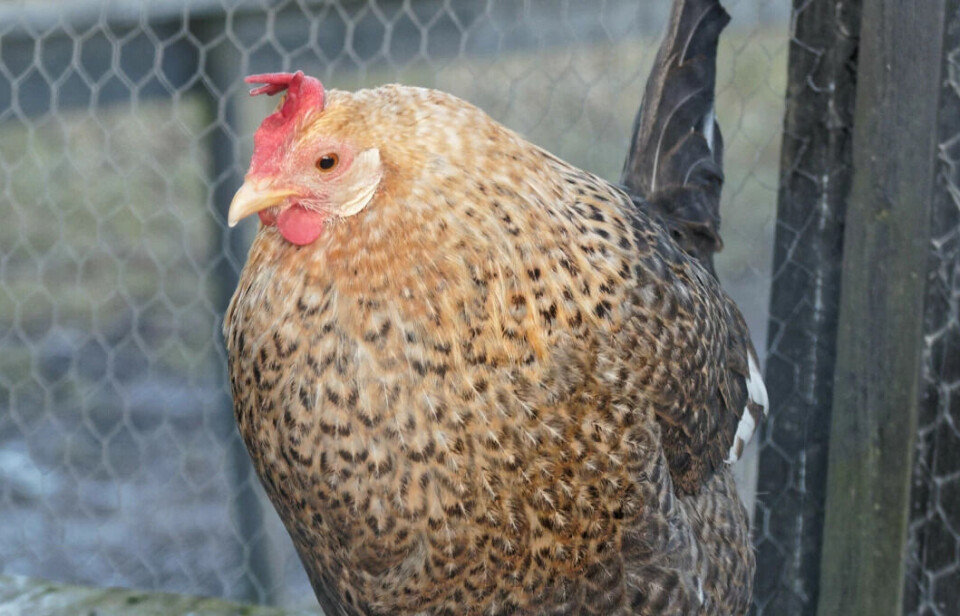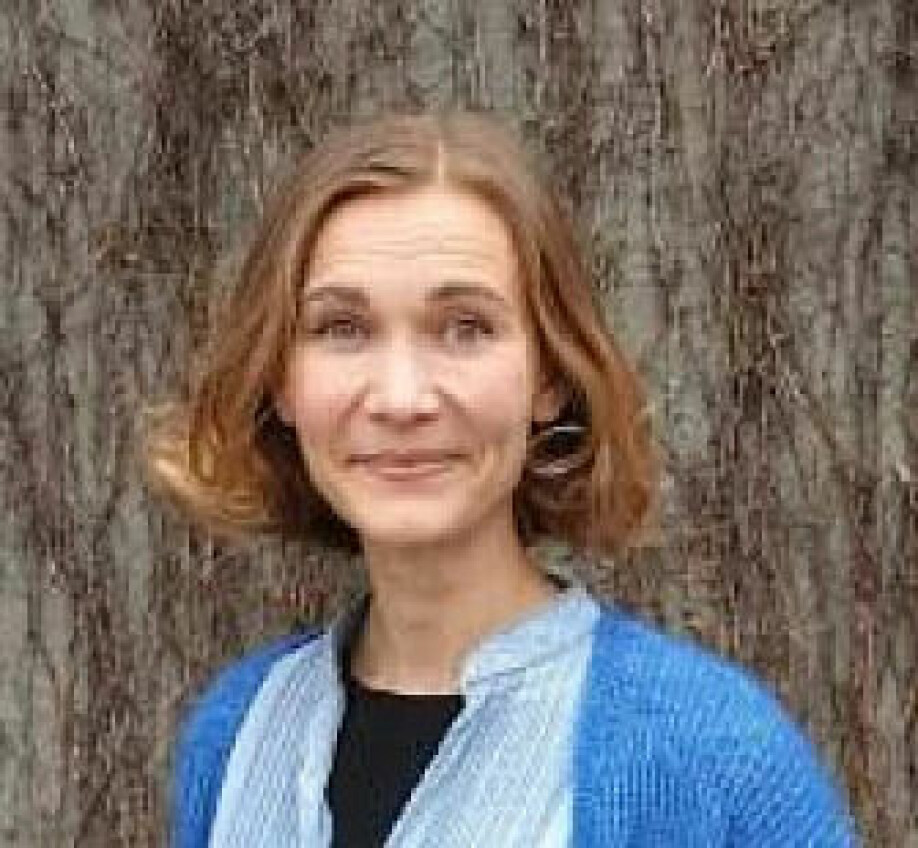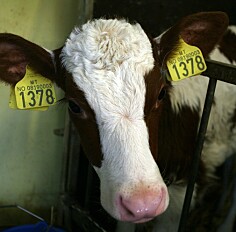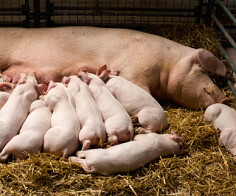
Even chickens can de-stress with a good bath
Stressed chickens have pain, become sicker and lay fewer eggs. Food and animal welfare are at stake when researchers help the birds cope with stress.
Humans often find that a good bath is a miracle cure for stress. Believe it or not, chickens think so too.
Poultry that are allowed to do as they please are less stressed.
“We gave them a large board for sand bathing, and they like it a lot,” says Janicke Nordgreen.
Nordgreen is an associate professor in the Veterinary College at the Norwegian University of Environmental and Life Sciences (NMBU). She collaborates with brain researchers to improve the lives of chickens.
Do as they please
Chronically stressed poultry suffer, but their stress level is difficult to measure. Now the brain researchers are measuring how many new nerve cells adult birds form.
“If the birds are chronically stressed, they form fewer new nerve cells. We have tried to take birds from different backgrounds with different environmental enrichments and look at their formation of new nerve cells,” says Nordgreen.

When researchers and egg producers talk about ‘environmental enrichment,’ they are referring to things like pecking stones, hay and dust baths – anything that helps the chickens do what they want and behave more like they would in their natural environment.
European cooperation
“We also do other tests and look at behaviour. We can observe how they’re affected if they grow up in one environment and have to produce in another,” says Nordgreen.
The research project is called Chickenstress, and right now 14 PhD students around Europe are working to get PhDs on stressed chickens. The main goal is to help the birds have good lives without too much stress, Nordgreen says.
At one time, eggs were a seasonal commodity that people farmed and preserved.
“We have both researchers who are doing basic research on the chickens’ brain, using genetics and bioinformatics, and researchers like me who are working more with applied research, directly with poultry and animal welfare. We use what the brain researchers know about the brain and connect it to practical animal welfare,” she says.
Variety fosters resilience
It turns out that the best situation for the birds is to live in an environment similar to the one they grew up in. But even chicks who started life in cages are better off when they have environmental enrichment as adults.
So far, Nordgreen is basing her assessment on the birds’ behaviour.
Lucille Dumontier will be finishing up her doctorate at the NMBU Veterinary College in the summer, and by then the neurophysiology will also be in place and the nerve cells counted.
“Chickens that grow up in a free-range setting seem to be more robust than those that have grown up in cages. It's no wonder that you become more resilient when you have a greater variety of experiences,” she says.

Chronic stress increases mortality
Why research stressed chickens? Animal welfare is part of the reason, but it also has to do with food and money.
“We eat a lot of eggs. Eggs are an extremely important source of protein. It’s important to contribute to constantly improving poultry welfare here, and then we can share that knowledge in other parts of the world to improve animal welfare in general,” says Nordgreen.
“Chronic stress and poor welfare also affect productivity. Stress and fear affect the birds’ pecking behaviour and feather pecking. These behaviours result in poorer health and increased mortality, and are certainly not beneficial for the economy,” Nordgreen says.
She is aware that researchers need to find solutions that don’t merely sound suitable in academia. Egg producers have to be able to apply the advice in practice. Therefore, the Chickenstress researchers are collaborating with breeding companies and egg producers, and many of the PhD candidates are deployed in companies.
Concerned about animal welfare
More people are concerned with animal welfare than before, says Annechen Bahr Bugge, a researcher at the Centre for Welfare and Labour Research at Oslomet.
Six out of ten consumers worry about animal welfare when buying food. One in five say that they have changed their diet because of animal welfare in the last two to three years, according to a recent survey from Consumption Research Norway (SIFO).
But people’s knowledge of the subject is limited, and they don't always make the most animal-friendly choices.
“Eggs were once a seasonal product that we farmed and preserved. Now grocery stores are just overflowing all year long, and everything has to be incredibly cheap,” she says.

Efficient or animal-friendly?
Cheap food means that production has to be efficient. The most efficient production is often not the most animal-friendly.
“Young people in particular express great uncertainty. When we ask about food production, there are huge ‘don't know’ categories,” says Bugge.
She wishes it would be possible to open the barn door and give more people more knowledge about how food is produced, whether it's apples or eggs.
“When so many people answer stupidly or are outright mistaken, it actually has to do with the fact that the vast majority of us are so far removed from where and how our food is produced,” she says.
The distance to the reality out there on the farm extends far into the research environment, too.
“At one seminar I met a researcher who had never seen a live cow before she came to Norway,” Bugge said.
References:
Lucille Dumontier et.al.: Early life environment and adult enrichment: Effects on fearfulness in laying hens. Applied Animal Behavior Science, 2022.
Annechen Bahr Bugge and Alexander Schjøll: Miljø- og dyrevelferdsspørsmål knyttet til produksjon og forbruk av fisk og kjøtt – hva er forbrukernes betraktninger og betenkeligheter? (Environmental and animal welfare issues related to the production and consumption of fish and meat – what are consumers' considerations and concerns? SIFO report no. 6–2021. ISBN 978-82-7063-526-9
———
Read the Norwegian version of this article at forskning.no





































